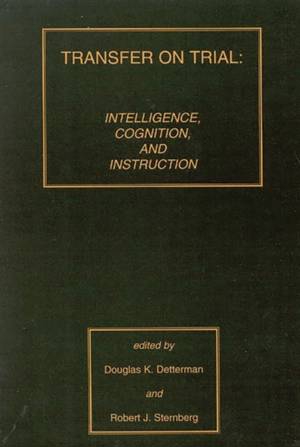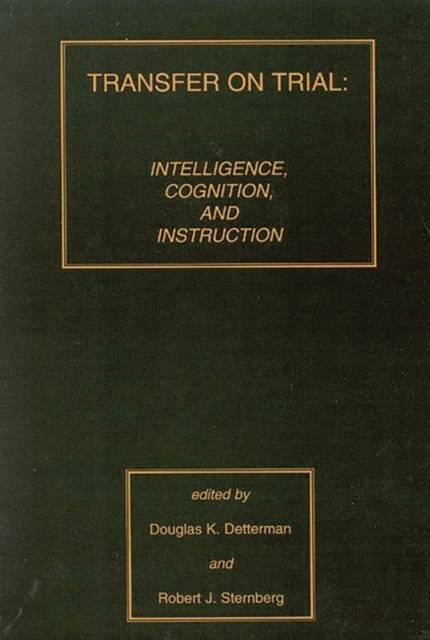
Je cadeautjes zeker op tijd in huis hebben voor de feestdagen? Kom langs in onze winkels en vind het perfecte geschenk!
- Afhalen na 1 uur in een winkel met voorraad
- Gratis thuislevering in België vanaf € 30
- Ruim aanbod met 7 miljoen producten
Je cadeautjes zeker op tijd in huis hebben voor de feestdagen? Kom langs in onze winkels en vind het perfecte geschenk!
- Afhalen na 1 uur in een winkel met voorraad
- Gratis thuislevering in België vanaf € 30
- Ruim aanbod met 7 miljoen producten
Zoeken
Transfer on Trial
Intelligence, Cognition and Instruction
Douglas Detterman, Robert Sternberg
Paperback | Engels
€ 93,45
+ 186 punten
Omschrijving
The importance of transfer for understanding intelligence, cognition, and education has been debated for a century, as it has been one of the central theoretical issues in psychology, education, and cognition. Education theories are based on the assumption that students will transfer what they learn in school to new situations. But what if transfer does not occur? Much of current educational practice could be called into question. This book presents views on the status of transfer research. Detterman argues that there is little evidence to support the existence of the transfer of complex skills such as those usually taught in school. Contributors Earl C. Butterfield and James G. Greeno argue that transfer not only exists but that it is fundamental to complex cognitive performance. Other contributors take intermediate positions, presenting a review of transfer studies in applied domains. These authors explore the situations in which transfer can or cannot occur.
Specificaties
Betrokkenen
- Auteur(s):
- Uitgeverij:
Inhoud
- Aantal bladzijden:
- 304
- Taal:
- Engels
Eigenschappen
- Productcode (EAN):
- 9780893918262
- Verschijningsdatum:
- 1/01/1993
- Uitvoering:
- Paperback
- Formaat:
- Trade paperback (VS)
- Afmetingen:
- 152 mm x 227 mm
- Gewicht:
- 417 g

Alleen bij Standaard Boekhandel
+ 186 punten op je klantenkaart van Standaard Boekhandel
Beoordelingen
We publiceren alleen reviews die voldoen aan de voorwaarden voor reviews. Bekijk onze voorwaarden voor reviews.









